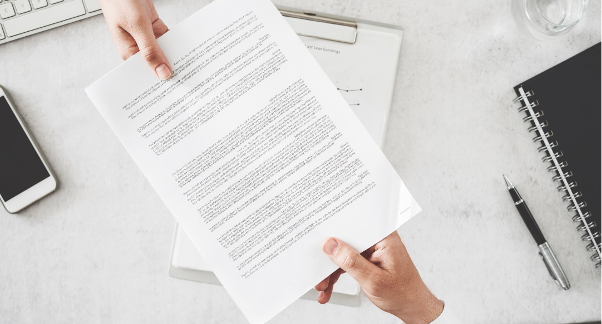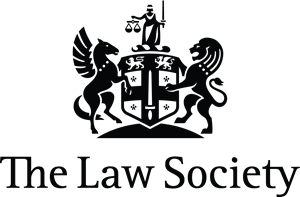Leasehold enfranchisement is a significant aspect of property law that allows leaseholders to acquire the freehold of their property or extend their lease. At Adam Bernard Solicitors, we specialise in providing expert legal advice and representation as leasehold enfranchisement solicitors, helping leaseholders understand their rights and navigate the enfranchisement process. This section explores what leasehold enfranchisement entails, the legal context surrounding it, the process involved and the benefits it offers to leaseholders.
Call us on 0207 100 2525 for immediate help & assistance with your situation.
We’re here to help you in person, via the phone or online.
In the UK, many properties are sold on a leasehold basis, meaning that the leaseholder has the right to occupy the property for a specific period while the freeholder retains ownership of the land. Legal advice for leasehold enfranchisement refers to the legal process by which leaseholders can acquire the freehold title of their property, thereby gaining full ownership and control over it.
There are two primary types of enfranchisement:
Collective Enfranchisement: This allows a group of leaseholders within the same building or development to come together and collectively purchase the freehold from the landlord.
Individual Enfranchisement: This enables a single leaseholder to extend their lease or purchase the freehold.
The legal process governing how to buy the freehold of a leasehold property is set out in the Leasehold Reform Act 1967 and the Commonhold and Leasehold Reform Act 2002. These acts provide the necessary provisions for leaseholders to exercise their rights and outline the procedures to follow. Key requirements include:
Eligibility: To qualify for enfranchisement, leaseholders typically need to have owned the leasehold interest for at least two years and must meet certain criteria outlined in the legislation.
Qualifying Lease: The lease must be for a property that is not less than 21 years in length when originally granted. If the lease has less than 21 years remaining, the leaseholder may still extend extend a lease on a leasehold property under the Leasehold Reform, Housing and Urban Development Act 1993.
Valuation: The amount payable for the freehold or lease extension is based on a valuation process that considers various factors, including the remaining term of the lease, ground rent and property market conditions.
Notice of Claim: The leaseholder must serve a formal notice of claim to the freeholder, outlining their intention to enfranchise and the proposed terms.

The enfranchisement process can be complex and involves several stages:
Initial Assessment: The first step is to assess whether you are eligible for enfranchisement. Our leasehold enfranchisement solicitor will conduct a thorough review of your leasehold agreement and provide guidance on your rights.
Valuation: Before proceeding, you must obtain an accurate valuation of the property. This valuation will form the basis of your offer to the freeholder. We can arrange for a qualified surveyor to conduct the valuation and provide an assessment of the freehold price.
Serve Notice: Once the valuation is established, our solicitors will draft and serve the necessary notice to the freeholder. This notice will include details of the property, the proposed purchase price, and the basis for the claim. The freeholder is legally obliged to respond within a specified time frame.
Negotiation: After serving the notice, negotiations will typically ensue between the leaseholder and the freeholder. Our solicitors will represent your interests in these negotiations to secure the best possible terms for the enfranchisement.
Formal Agreement: If an agreement is reached, a formal contract will be drawn up outlining the terms of the sale, including the price and any other conditions. Our solicitors will review this agreement to ensure that it protects your rights.
Completion: Once the contract is signed, the transaction proceeds to completion. At this stage, the necessary legal documents will be filed with the Land Registry, and the leaseholder will acquire the freehold interest in the property.
Post-Completion Matters: After completion, we will handle any additional administrative tasks, such as updating the Land Registry records and addressing any outstanding financial obligations.
Full Ownership: Acquiring the freehold means that you own the property outright, eliminating any future ground rent obligations and providing greater security and control over your home.
Increased Property Value: Freehold properties tend to have a higher market value than leasehold properties. Enfranchising can enhance your property’s resale value and appeal to potential buyers.
Greater Flexibility: As a freeholder, you have more flexibility regarding property modifications and renovations without needing permission from a landlord.
Long-Term Security: Extending your lease or purchasing the freehold can provide long-term security, as it removes the risk of lease expiration and the potential for significant increases in ground rent.
Protection Against Major Changes: Leasehold enfranchisement can protect you from major changes imposed by the freeholder, such as increasing ground rent or altering the terms of your lease.
While leasehold enfranchisement offers many benefits, there are also challenges that leaseholders may face:
Costs: The process of enfranchisement can involve significant costs, including valuation fees, legal fees and the price of the freehold itself. It is essential to budget accordingly and be prepared for these expenses.
Disputes with Freeholders: Negotiations with freeholders can sometimes be contentious, especially if the freeholder is unwilling to agree to reasonable terms. Having experienced legal representation can help mitigate these challenges.
Time-Consuming Process: Enfranchisement can be a time-consuming process, with negotiations and legal formalities potentially extending over several months. Patience and proper planning is fundamental for this process.
Legal Expertise Required: Working with a knowledgeable solicitor is vital to ensure that you are adequately informed and protected throughout the process.
Expertise in Leasehold Law: Our solicitors have extensive experience in leasehold enfranchisement, ensuring that you receive expert advice and representation throughout the process.
Client-Centric Approach: We prioritise your needs and goals, providing tailored solutions that align with your specific circumstances and objectives.
Comprehensive Support: From initial assessment to completion, we offer comprehensive support, guiding you through each stage of the enfranchisement process.
Transparent Pricing: Our solicitors provide clear and transparent pricing, so you know exactly what to expect regarding costs.
Commitment to Your Success: We are dedicated to achieving the best possible outcomes for our clients. Our team works tirelessly to ensure that your enfranchisement process is smooth, efficient and successful.
Leasehold enfranchisement is an essential legal right that allows leaseholders to take control of their properties and secure long-term ownership. At Adam Bernard Solicitors, we are committed to providing expert legal support and guidance throughout the enfranchisement process. Whether you are considering extending your lease or acquiring the freehold, our knowledgeable solicitors are here to help you direct you with leasehold law. Contact us today to learn more about how to extend a lease on a leasehold property and achieve your property goals.
Copyright © 2025 Adam Bernard Solicitors. This Firm is Authorised & Regulated by the Solicitors Regulation Authority SRA NO: 598171, 656730.





